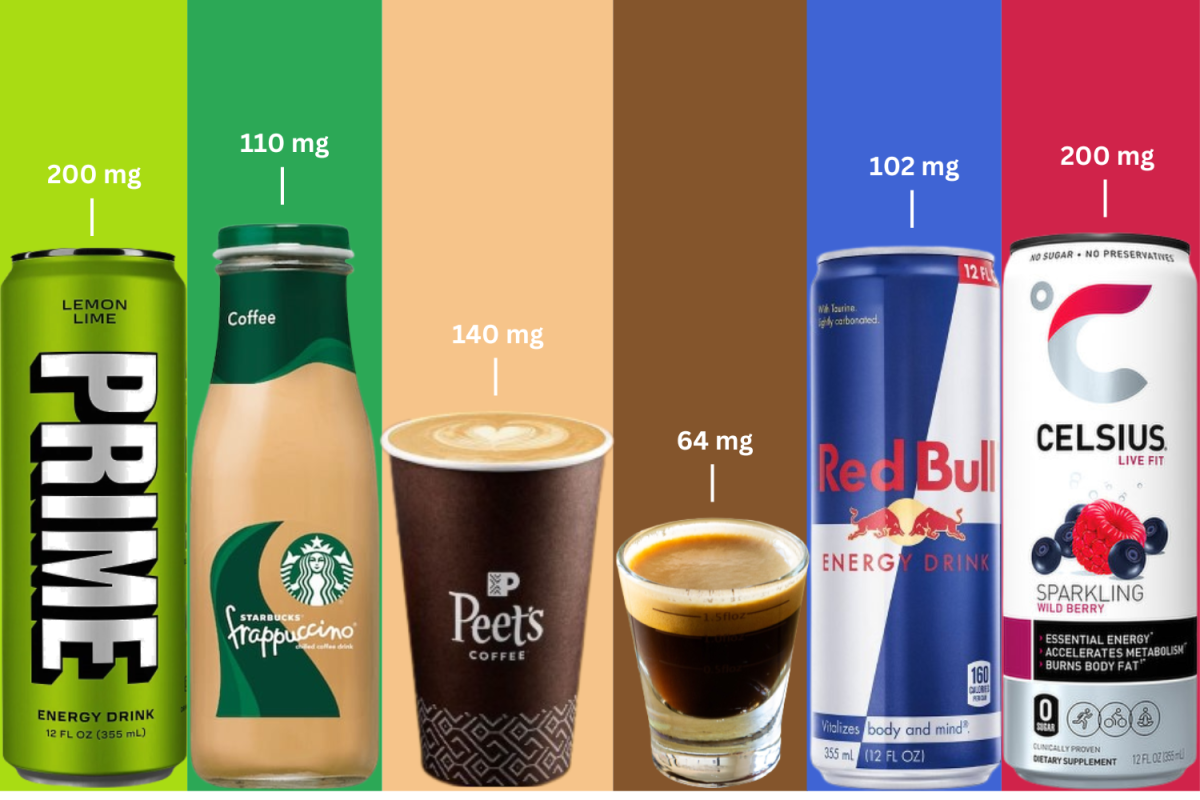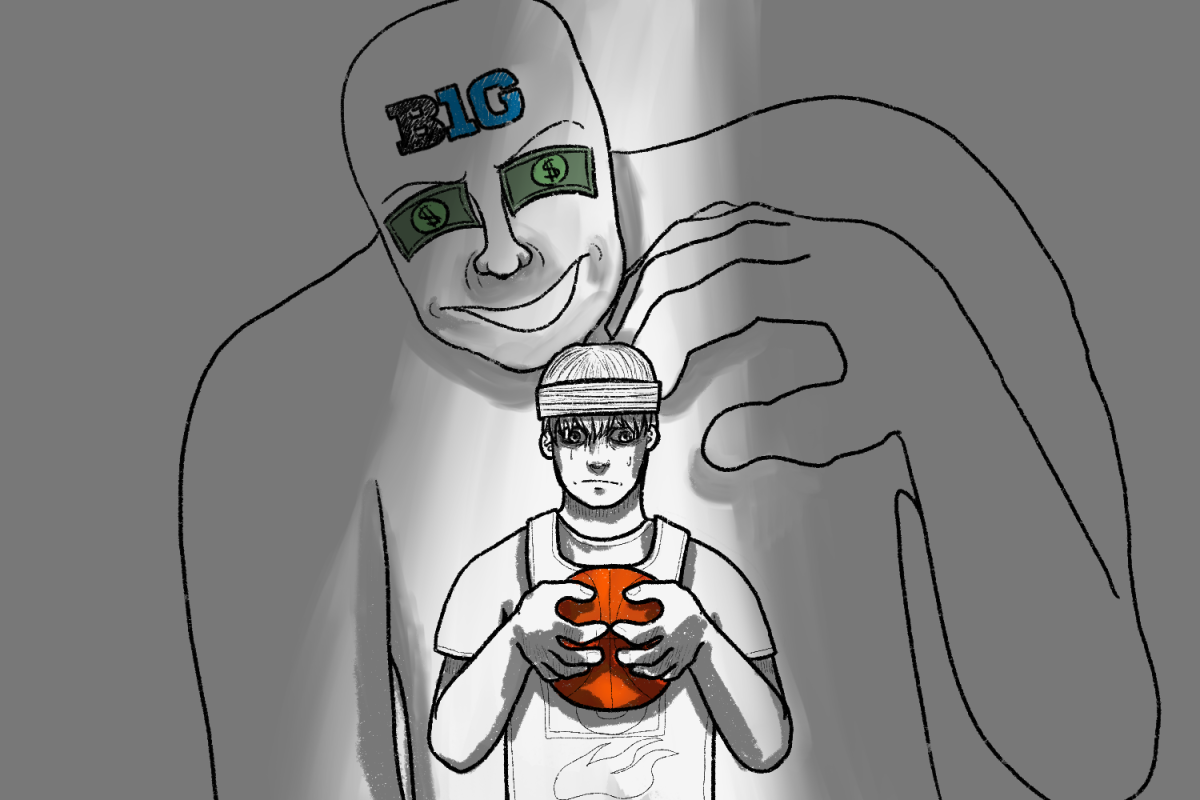“I need caffeine to get through my day” is a sentence uttered by students all over the globe. No one’s surprised when you walk around campus and see a cup of coffee in someone’s hand or an energy drink in another’s.
Caffeine is directly associated with energy and is made more addictive with fun flavors and sweeteners. It is most popularly known to keep you awake by heightening your senses and increasing stimulation in your brain. However, this effect is often only temporary and can lead to health issues such as insomnia or increased heart rates.
The National Health and Nutrition Examinations Surveys show that 10% of people aged 15 to 19 years old consume caffeine through energy drinks. Compared to people who are 35 to 49 years old, teenagers are ten times more likely to use an energy drink as their source of caffeine.
In July 2023, Senate Majority Leader Chuck Schumer asked for the Prime Energy drink to be investigated, which can be recognized on store shelves by its bright and bold packaging.
Many people feel the drink is specifically meant to be marketed toward young adults, even though it is “not recommended” for “people sensitive to caffeine” or under 18 years old. The reason for this warning is the fact that a 12-ounce can contains 200 milligrams of caffeine.
According to the American Academy of Child and Adolescent Psychiatry, people 12 to 18 years old should not consume more than 100 milligrams of caffeine daily. Does the amount of caffeine in Prime Energy suddenly seem like a lot?
Although many stay under this limit with just one drink, it’s very easy to exceed the recommended amount. For example, a grande latte from Starbucks is said to have 150 mg of caffeine. Even decaffeinated beverages like coffee or tea are still slightly caffeinated, contrary to popular belief. They have much less than the average drink but contain caffeine nonetheless.
Drinking caffeine has many benefits, such as an improved mood or a lower risk of certain diseases. A can of Red Bull can get you through the night to finish an important homework assignment. But the critical thing to remember is that the majority of the effect of caffeine is in the short-term, and the long-term effects can be even more harmful.
Some alternatives to caffeine include water, nuts, or berries. In addition, B vitamins help maintain your energy and can be found in many forms of protein. The next time you want to increase your alertness, be mindful of how much caffeine you consume.
*This editorial reflects the views of the Scot Scoop Editorial Board and was written by Elizabeth Cruz.
The Editorial Board voted 13 in agreement, 1 somewhat in agreement, and 3 refrained from voting.













